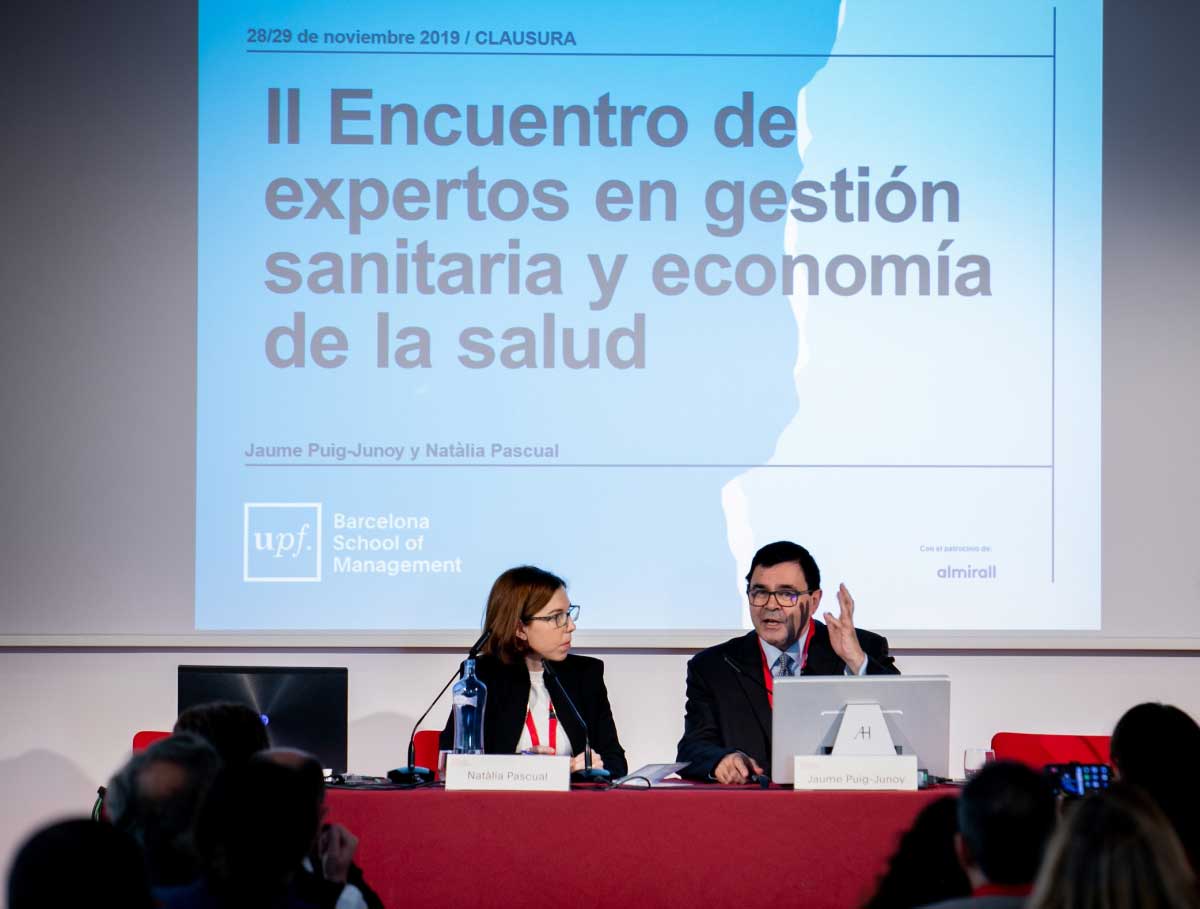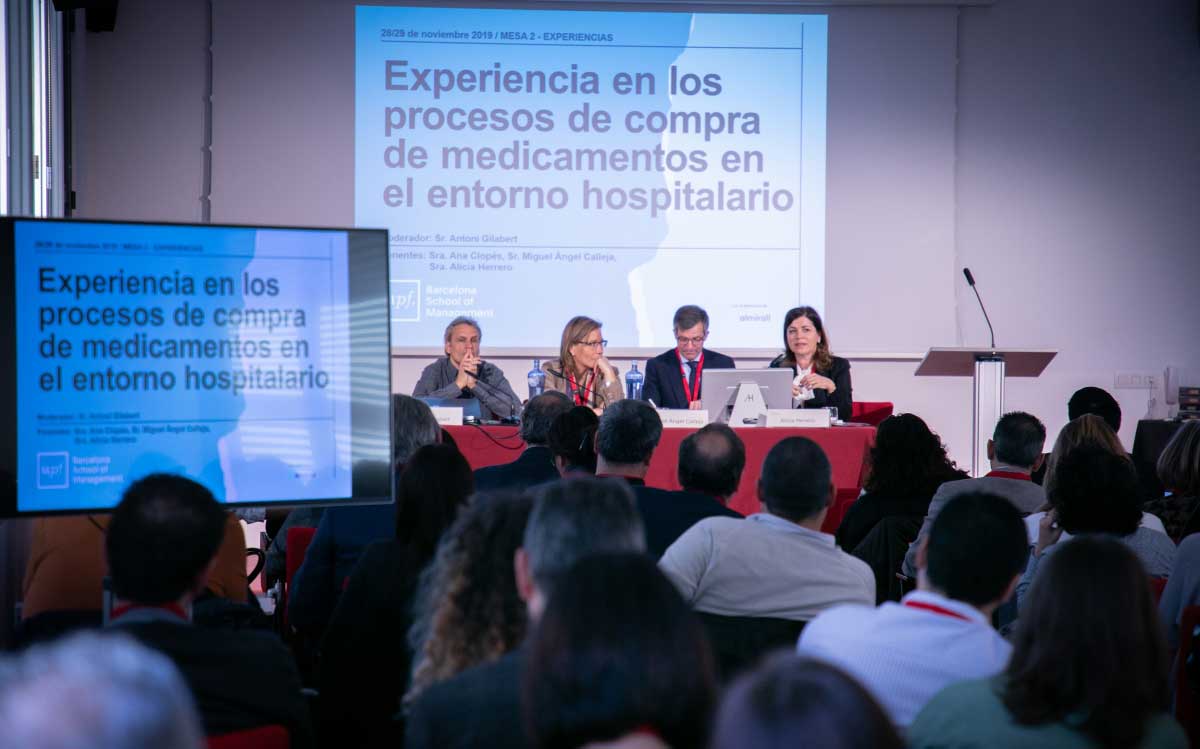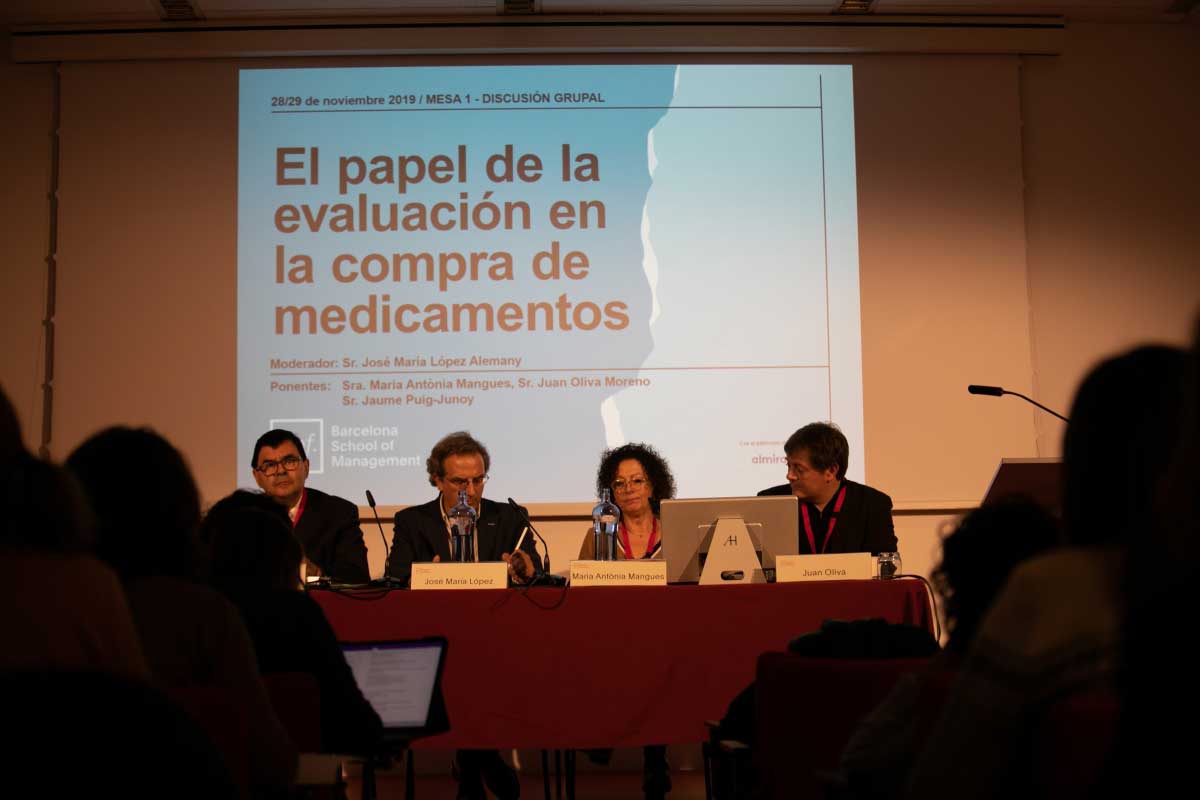
- About UPF-BSM
- Programs
- Faculty and research
- Companies and Organizations
- News & Events
The transformation in how medicines are purchased: from products to results
1 Diciembre - 2019- Healthcare managers and pharmacists from Spain's main hospitals have gathered to attend the "II Meeting of Experts in Healthcare Management and Health Economics" organised by the UPF Barcelona School of Management and sponsored by Almirall.
- Funding may be secured for new medicines if they have a social value, in the aim of ensuring Spain's SNS (National Healthcare System) remains solvent and sustainable.

Although pharmaceutical innovation is a factor fundamental to improving healthcare, the rise in public spending on medicines is a major cause of concern among politicians and healthcare managers. This was reinforced by Director of the Catalan Institute of Health, Josep Maria Argimón, at the "II Meeting of Experts in Healthcare Management and Health Economics" led by Professor Jaume Puig-Junoy, sponsored by Almirall and held at the UPF Barcelona School of Management.
The encounter saw academics, healthcare managers, assessors and pharmacists from Spain's main hospitals joining leading figures in healthcare to analyse innovative purchasing experiences in the hospital environment and debate the future challenges for the healthcare system from an economic perspective. Argimón reminded attendees that the grounding bases of healthcare economics have come to influence the sphere of healthcare management, also emphasising the rising expenditure on inpatient medicines dispensed to outpatients from budgets 'that are yet to allow for additional wage increases or account for technological obsolescence'. Advances made in alignment with this have prompted a need to gauge the effectiveness of treatments and the incorporation of patients' perspectives into the assessment.
Attendees agreed that an economic assessment may prove to serve as a key element both before and after the purchase of new treatments. In such an evaluation, the study of the social value of medicines is particularly significant in the attempt to guarantee the solvency and sustainability of the SNS. In this context, the importance of the pharmacist's role is not so much measured by the mere cost of the medication, but also by taking into account clinical aspects related to improvements in health and to patient satisfaction, rendering the innovation sustainable.
The progress of the innovation
The inaugural conference led by Félix Lobo of the University Carlos III of Madrid reviewed the characteristic features of innovation in healthcare from the perspective of industrial economics. Lobo highlighted the complementarity required from the public and private sectors when it comes to funding the innovation. Promoting innovation requires an understanding of the specific risk faced by the healthcare sector throughout all of the stages of R&D and the related effects of incentives, particularly those derived from the public sector. Recent years have seen shifts in competition patterns, research structures and innovation strategies, paving the way for a context in which small biotech companies have come to drive innovation, later requiring alliances to bring the innovations onto the market.

